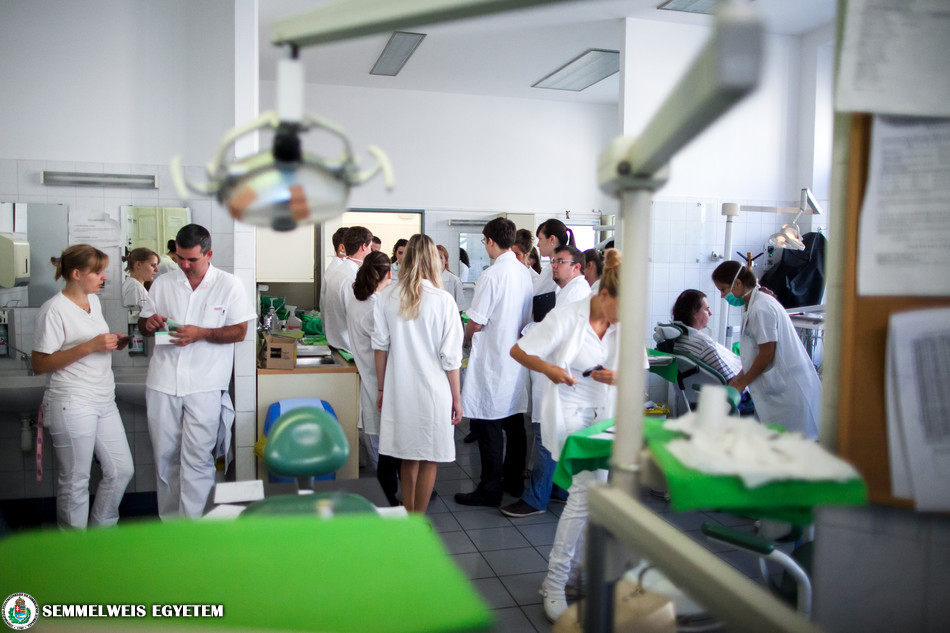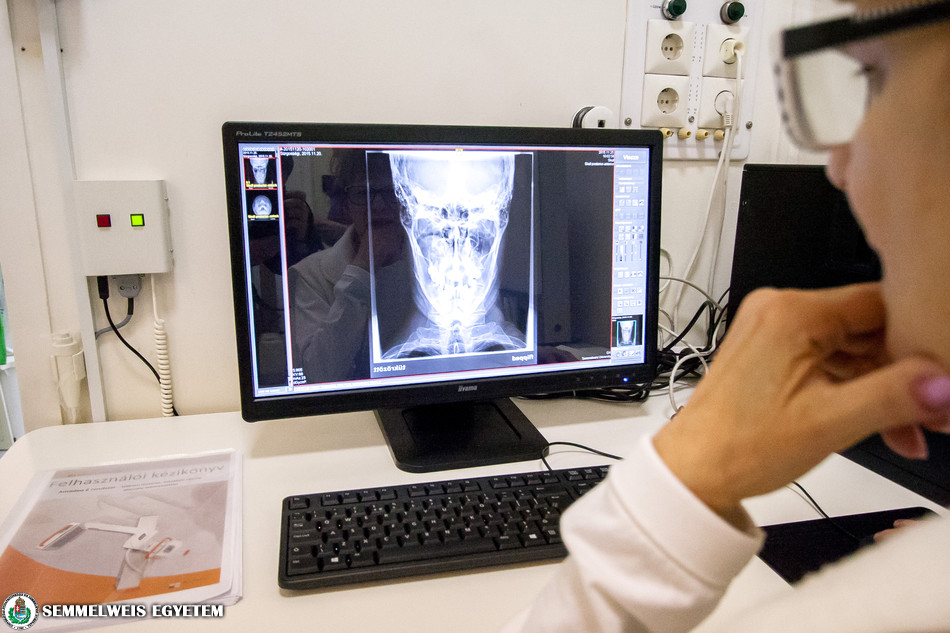 At the Department of Oro-Maxillofacial Surgery and Stomatology of the Faculty of Dentistry, more than 44,000 patients are treated annually, and 1,400 major maxillofacial surgeries are performed. The clinic teaches oral surgery, oral implantology and practice management to dentistry students, as well as the theoretical and practical training of oral surgery dentistry for general medical students.
At the Department of Oro-Maxillofacial Surgery and Stomatology of the Faculty of Dentistry, more than 44,000 patients are treated annually, and 1,400 major maxillofacial surgeries are performed. The clinic teaches oral surgery, oral implantology and practice management to dentistry students, as well as the theoretical and practical training of oral surgery dentistry for general medical students.
The clinic was founded in 1908 by József Árkövy, whose work and recognition went far beyond the borders of the country. It was the first inpatient dental clinic in Europe.
The clinic has an inpatient department for oro-maxillofacial and dentoalveolar surgery and an outpatient dental surgery department and also a radiologic section is operational. The activities of dentoalveoral surgery include dental implantology, pre-prosthetic surgeries (prior to dentures), bone replacement procedures, surgical removal of unerupted teeth (permanent teeth that do not appear in the dental arch during tooth development) and surgical-endodontic treatments. Oro-maxillofacial surgeries include the treatment of benign and malignant tumors in the head and neck region, plastic and reconstructive surgeries, microsurgery and facial pain treatments.
Since 2014, the clinic has had a department specifically designed to care for children and adults with special needs. The specially equipped care facility operates with a team of professionals with unique expertise. There are a total of six such centers in the country, with about 500 interventions per year at Semmelweis University.
 The clinic teaches oral surgery, radiology, oral implantology and practice management to 3rd, 4th and 5th year dental students, as well as the theoretical and practical courses of oral surgery and dentistry for general medical students in Hungarian, German and English. A large number of students present TDK works and rector’s dissertations and doctoral thesises at the clinic. High-quality undergraduate and graduate education is also recognized by foreign partner universities. The clinic trains and examines 10-12 oral surgeon specialist a year. The instructors of the clinic regularly give lectures in various exam-preparation courses for preparing specialists, as well as regular postgradual and training lectures for oral surgeons, dentists, surgeons, ophthalmologists and otolaryngologists.
The clinic teaches oral surgery, radiology, oral implantology and practice management to 3rd, 4th and 5th year dental students, as well as the theoretical and practical courses of oral surgery and dentistry for general medical students in Hungarian, German and English. A large number of students present TDK works and rector’s dissertations and doctoral thesises at the clinic. High-quality undergraduate and graduate education is also recognized by foreign partner universities. The clinic trains and examines 10-12 oral surgeon specialist a year. The instructors of the clinic regularly give lectures in various exam-preparation courses for preparing specialists, as well as regular postgradual and training lectures for oral surgeons, dentists, surgeons, ophthalmologists and otolaryngologists.
 The key research areas of the clinic include the optimization and research of the shape, material composition and surface properties of the implants and medical instruments used in maxillofacial surgery; clinical application of various bone substitutes, bone regeneration procedures; the development of new chemotherapeutic protocols, the treatment of malignant head and neck tumors through reconstructive surgeries, and the clinical and pathological examination of juvenile malignancies of the oral cavity.
The key research areas of the clinic include the optimization and research of the shape, material composition and surface properties of the implants and medical instruments used in maxillofacial surgery; clinical application of various bone substitutes, bone regeneration procedures; the development of new chemotherapeutic protocols, the treatment of malignant head and neck tumors through reconstructive surgeries, and the clinical and pathological examination of juvenile malignancies of the oral cavity.
The clinic runs the secretariat of the Hungarian Society of Facial and Maxillofacial Surgery and the Implantology Society of the Hungarian Association of Dentists, as well as a foundation to help the training and postgradual training of medical students and young oral surgeons.